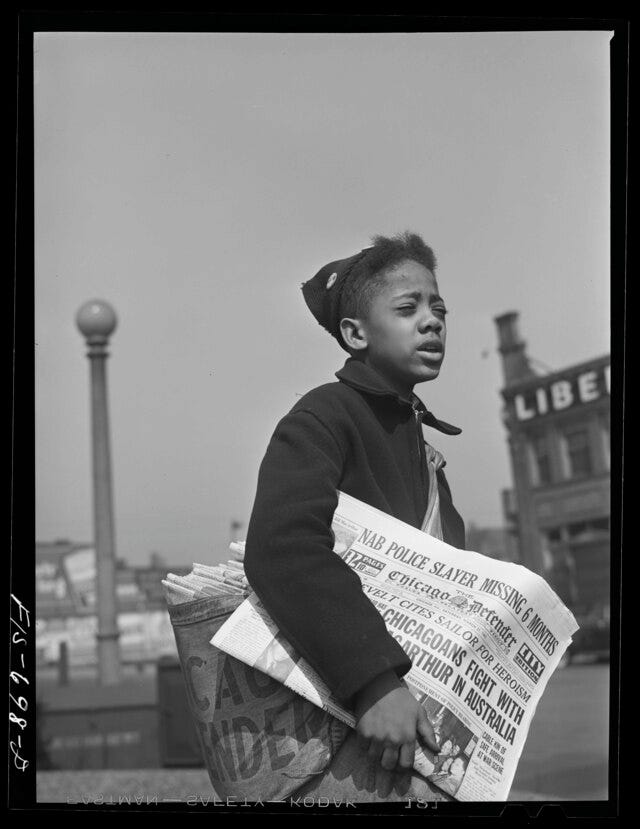“We Wish to Plead Our Own Cause. Too Long Have Others Spoken For Us”
The phrase “We wish to plead our own cause. Too long have others spoken for us” eloquently encapsulates the struggle for voice and representation that has historically plagued African Americans in the United States. This clarion call signals a crucial shift toward self-advocacy and empowerment, underscoring a fundamental truth: the narratives of marginalized communities must be articulated by those who actually experience them. Examining this ethos, particularly through the lens of the Black Press, reveals its incredibly potent role in shaping public discourse and community identity.
The Birth of the Black Press
The inception of the Black Press can be traced back to the publication of Freedom’s Journal in 1827, the first African American newspaper in the United States. Founded by John Russwurm and Samuel Cornish, this groundbreaking periodical was more than just a newspaper; it was a declaration of self-determination. It allowed African Americans to communicate their struggles, aspirations, and achievements, filling the significant void left by mainstream media that largely dismissed or misrepresented their experiences.
The Role of Black Newspapers
Historically, Black newspapers have served as essential platforms for activism, advocacy, and cultural expression. Their missions were often rooted in the desire to challenge the racist narratives perpetuated by white-owned media. They provided a space where Black voices could emerge unfettered, proclaiming truths about discrimination, inequality, and civil rights. Publications like The Chicago Defender and The Pittsburgh Courier not only reported news; they ignited movements, offered educational resources, and provided hope in times of despair.
Mobilizing Communities
One of the most impactful aspects of the Black Press was its ability to mobilize communities around critical issues. When mainstream outlets failed to cover significant events affecting African Americans—such as racial violence or social injustices—Black newspapers would step in, documenting these realities and galvanizing public action. For example, during the Civil Rights Movement, they played a crucial role in organizing protests, disseminating information about meetings, and highlighting the work of local leaders, thereby knitting together national solidarity.
Personal Stories and Collective Memory
For many, the Black Press offers more than news; it provides a sense of identity and belonging. In my own experience growing up in Minneapolis, I relied on publications like Jet and Ebony for Black news, alongside local newspapers such as The Minneapolis Spokesman. While these outlets covered celebrity culture and sports, they also reported on pressing issues like the brutal murder of Emmett Till, presenting a narrative often absent from mainstream sources. This interplay of local and national stories helped cultivate a collective memory, reinforcing community ties and fostering cultural pride.
The Impact of Visual Media
In addition to written narratives, photography has played an indispensable role in the Black Press. Often, powerful images would accompany stories, creating an emotional and visceral connection for readers. These images have challenged the public’s perception and brought attention to the realities of injustice. For instance, graphic photos from the Civil Rights era, such as those published by Jet after Till’s murder, served to awaken the conscience of a nation, stirring outrage and empathy among Americans of all backgrounds.
The Modern Black Press
Today, the legacy of the Black Press continues, albeit in a different landscape characterized by digital media. Online platforms and social media have opened new avenues for storytelling, allowing journalists and community members alike to share their narratives widely. Websites, podcasts, and social media accounts dedicated to Black journalism have emerged, offering fresh perspectives on contemporary issues while continuing the tradition of self-advocacy.
Conclusion
The phrase “We wish to plead our own cause” is not merely a historical statement; it remains a living reminder of the ongoing pursuit for visibility, representation, and justice. The Black Press exemplifies this journey, embodying resilience and creativity in the face of systemic challenges. As we continue to engage with these narratives, we not only honor the past but also bolster the vigorous tapestry of voices that make up the African American experience.



